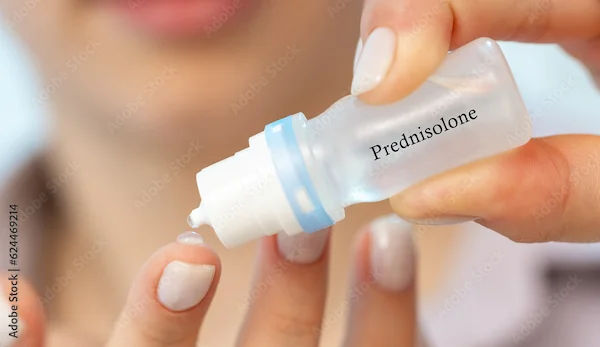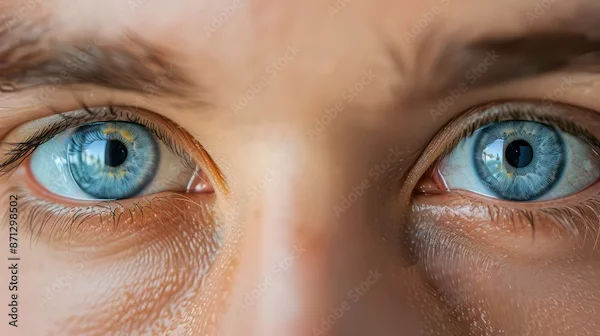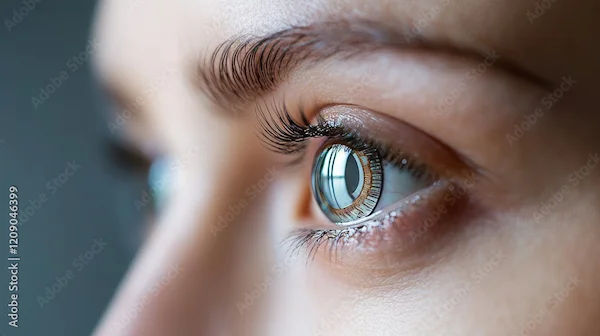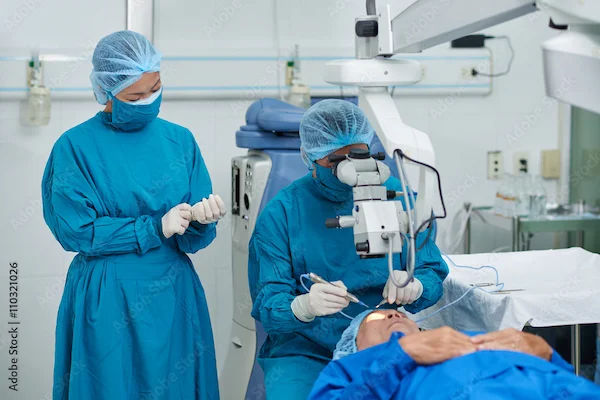Eye Exercises For Double Vision After Cataract Surgery
Experiencing double vision after cataract surgery? Discover effective eye exercises designed to help reduce diplopia, strengthen eye muscles, and improve visual alignment for clearer, comfortable vision.

Written by Dr.Sonia Bhatt
Last updated on 16th Jul, 2025
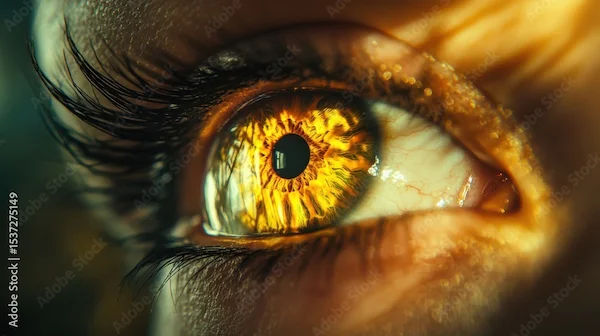
Introduction
Cataract surgery is a common and generally safe procedure that helps restore clear vision by replacing the cloudy lens with an artificial one. However, some patients may experience double vision (diplopia) after the surgery. While this can be concerning, it’s often temporary and can improve with time and simple eye exercises.
In this article, we’ll discuss:
What causes double vision after cataract surgery
Simple eye exercises to help improve vision
When to seek medical help
Tips for faster recovery
Understanding Double Vision After Cataract Surgery
Double vision means seeing two images of a single object. It can occur in one eye (monocular diplopia) or both eyes (binocular diplopia).
Common Causes of Double Vision After Surgery
Common causes of double vision after surgery are:
1. Muscle Imbalance – The eye muscles may take time to adjust after surgery.
2. Swelling or Inflammation – Temporary swelling can affect how the eyes work together.
3. Dry Eyes – Reduced tear production can cause blurry or double vision.
4. New Lens Adjustment – Your brain needs time to adapt to the new artificial lens.
Most cases improve within a few weeks, but eye exercises can speed up recovery.
Effective Eye Exercises for Double Vision
These exercises help strengthen eye muscles, improve coordination, and reduce strain.
1. Pencil Push-Ups (Convergence Exercise)
How to do it:
Hold a pencil at arm’s length, focusing on its tip.
Slowly bring it closer to your nose while keeping the tip clear and single.
Stop when you see double, hold for a few seconds, then move it back.
Repetitions: 10 times, 2-3 times a day.
2. Brock String Exercise
What you need: A string with 3 colored beads.
How to do it:
Tie one end to a fixed point (like a doorknob).
Hold the other end near your nose.
Focus on one bead at a time, ensuring it appears single.
Repetitions: 5 minutes daily.
3. Eye Tracking Exercises
How to do it:
Move your finger slowly left, right, up, and down while following it with your eyes (without moving your head).
Repeat in circular motions.
Repetitions: 5 minutes, twice daily.
4. Palming (Relaxation Exercise)
How to do it:
Rub your palms together to generate warmth.
Close your eyes and gently place your palms over them (without pressure).
Relax for 1-2 minutes, breathing deeply.
Repetitions: 3-4 times a day.
5. Near-Far Focus Shifting
How to do it:
Hold a small object (like a pen) close to your eyes.
Focus on it for 5 seconds, then shift to a distant object (like a clock).
Alternate between near and far objects.
Repetitions: 10 times, twice daily.
Consult Top Ophthalmologist
Additional Tips for Faster Recovery
Additional tips for faster recovery are:
Use Artificial Tears – Dry eyes can worsen double vision. Lubricating drops help.
Wear an Eye Patch (Temporarily) – If double vision is severe, covering one eye can help until muscles adjust.
Avoid Straining Your Eyes – Limit screen time and take breaks.
Follow Post-Surgery Instructions – Use prescribed eye drops and attend followups.
When to See a Doctor?
While double vision usually improves, consult your doctor if:
It persists beyond a few weeks.
You experience pain, redness, or sudden vision loss.
You notice worsening symptoms.
Final Thoughts
Double vision after cataract surgery is often temporary and improves with simple eye exercises, rest, and proper care. If symptoms persist, don’t hesitate to seek medical advice. Book an eye checkup with an Apollo24|7 specialist today for personalized care!
Consult Top Ophthalmologist
Consult Top Ophthalmologist

Dr. Anupa Gulati
Ophthalmologist
25 Years • MBBS, Dip in Ophthalmology
New Delhi
Visitech Eye Centre Green Park, New Delhi
Dr. S Venkateswaran
Ophthalmologist
35 Years • MBBS, PGD (OPTHALMOLOGY)
Tiruvannamalai
Shiva Eye And General Hospital, Tiruvannamalai

Dr. Dipak Soni
Ophthalmologist
22 Years • MBBS,DO
Vadodara
Shiv Shakti Eye Clinic Phaco Centre, Vadodara
Dr. Geet Shah
Ophthalmologist
10 Years • MBBS,MS,CORNEA FELLOW
Ahmedabad
Cornea Clinic, Ahmedabad

Dr. Smriti Nagpal
Ophthalmologist
13 Years • MBBS , MS (Ophthalmology)
New Delhi
Sunshine mediclinic, New Delhi
Consult Top Ophthalmologist

Dr. Anupa Gulati
Ophthalmologist
25 Years • MBBS, Dip in Ophthalmology
New Delhi
Visitech Eye Centre Green Park, New Delhi
Dr. S Venkateswaran
Ophthalmologist
35 Years • MBBS, PGD (OPTHALMOLOGY)
Tiruvannamalai
Shiva Eye And General Hospital, Tiruvannamalai

Dr. Dipak Soni
Ophthalmologist
22 Years • MBBS,DO
Vadodara
Shiv Shakti Eye Clinic Phaco Centre, Vadodara
Dr. Geet Shah
Ophthalmologist
10 Years • MBBS,MS,CORNEA FELLOW
Ahmedabad
Cornea Clinic, Ahmedabad

Dr. Smriti Nagpal
Ophthalmologist
13 Years • MBBS , MS (Ophthalmology)
New Delhi
Sunshine mediclinic, New Delhi
